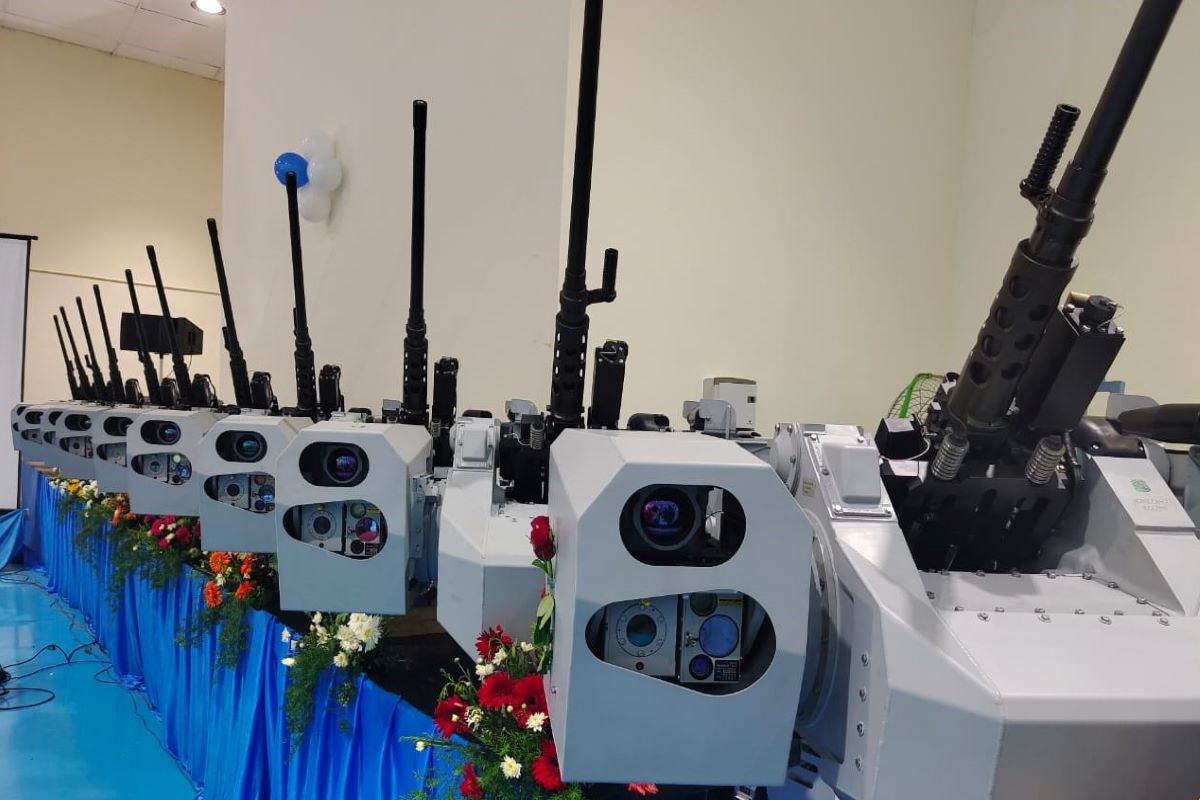Rajnath Singh launches 15 products developed by Defence PSUs, OFB
He expressed confidence that the drive for “Atma Nirbhar Bharat” to realise the goal of self-reliance would give the necessary impetus to India’s defence production.
The company said such guns are meant for marine applications and can remotely engage targets. It is equipped with an inbuilt CCD camera, thermal imager and a laser range finder for observation and tracking of targets through the day and night operations.

12.7mm M2 NATO standard heavy machine guns (file photo)
In a bid to add more teeth to India’s maritime security, the Ordnance Factory Board (OFB) has today announced that over 15 stabilised remote control guns (SRCG) were handed over to the Indian Navy and 10 to the Indian Coast Guard.
The Kolkata-headquartered defence manufacturer, said the guns have been manufactured by its Trichy factory. These are 12.7mm M2 NATO standard heavy machine guns.
Advertisement
The company said such guns are meant for marine applications and can remotely engage targets. It is equipped with an inbuilt CCD camera, thermal imager and a laser range finder for observation and tracking of targets through the day and night operations.
Advertisement
The Ordnance Factory Trichy (OFT) has also created modern state-of-the-art assembly and testing facilities for the indigenous manufacture of the SRCG system. More such guns will be made in a phased manner.
The OFB in its statement, said, “Trichy factory achieved an important milestone today with the handing over of fifteen 12.7mm M2 NATO standard heavy machine gun or stabilised remote control gun system to the Indian Navy and 10 guns to the Indian Coast Guard.”
It was learnt that the weapons were manufactured under the transfer of technology agreement from Elbit Systems, Israel, under the Make in India scheme. It may be noted that the ordnance factories have taken up similar projects under ‘Atmanirbhar Bharat’ which include manufacturing of weapons
in India by transfer of technology.
The Amethi factory is said to start production of the AK-203 rifles as soon as India initiates the contract with Russia. The complete transfer of technology is expected to be completed within 32 months of the contract, sources said. Sources, however, pointed out that it’s been two years since the foundation stone laying ceremony of the AK-203 project but production has still not begun.
Advertisement